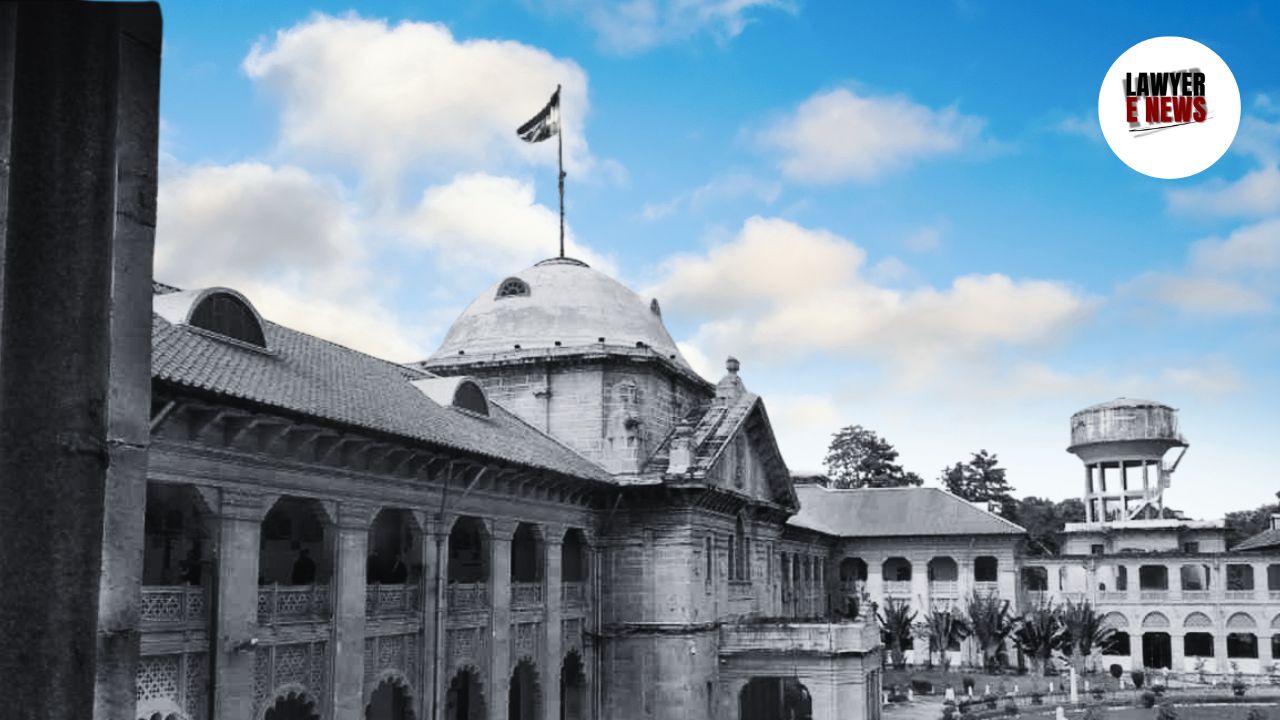-
by Admin
15 February 2026 5:35 AM



The Allahabad High Court has upheld a lower court's decision to partially allow an application under Order VII Rule 11 of the Civil Procedure Code (CPC), directing the plaintiff to pay additional court fees. The judgment, delivered by Justice Neeraj Tiwari, clarifies that in cases where a suit involves the cancellation or declaration of a void or voidable instrument—such as a will—adequate court fees must be paid as per Section 7(iv-A) of the Court Fees Act, 1870.
The case stems from a suit filed by Smt. Meetu Paruthi against Kushank Paruthi, seeking to declare a will deed dated March 26, 2021, and registered on February 20, 2023, as void. The plaintiff, widow of the late Naresh Kumar Paruthi, claimed her half-share in the property listed in the will. The defendant moved an application under Order VII Rule 11 of the CPC, arguing that the suit was insufficiently stamped, and thus, could not proceed unless the requisite court fee was paid.
The court emphasized that once an objection regarding the insufficiency of court fees is raised, it must be resolved before proceeding with other issues. The court relied on the clear provisions of Section 7(iv-A) of the Court Fees Act, 1870, which mandates the payment of court fees in cases involving the cancellation or declaration of void or voidable instruments. Justice Tiwari referred to multiple precedents to reinforce this view, noting that a will, once operative after the testator's death, secures property with monetary value, thereby necessitating appropriate court fees.
The plaintiff's counsel contended that the court improperly considered the defendant's arguments in deciding the application under Order VII Rule 11. However, the court clarified that it only addressed the issue of court fees, which was strictly within the framework of the said rule. The defense was not factored into the decision to partially allow the application.
The judgment extensively cited earlier decisions, including the cases of Rajni Swami vs. Shakuntala Sharma, Kailash Chand vs. Vth A.C.J., Meerut, and Sudha Sharma vs. Shashi Bala Sharma. These cases collectively establish that any instrument—such as a will—that secures property with a market value requires the payment of court fees under Section 7(iv-A) of the Court Fees Act.
The court underscored that the statutory requirement for court fees is not limited to suits seeking cancellation of a document but also applies to those aiming to declare such documents void. This interpretation ensures that the state's revenue interests are protected when adjudicating property rights arising from instruments like wills.
Justice Neeraj Tiwari remarked, "The law is clear: when a suit involves the adjudication of an instrument with monetary implications, court fees must be duly paid. Failure to do so not only violates the statute but also hampers the judicial process."
The Allahabad High Court's decision reinforces the necessity of adhering to the provisions of the Court Fees Act, 1870, in civil suits. By dismissing the revision petition, the court has sent a clear message that litigants must comply with statutory requirements, including the payment of adequate court fees, before seeking judicial relief. This judgment is expected to guide future cases involving the interpretation and application of the Court Fees Act, particularly in the context of wills and other instruments securing property.
Date of Decision: August 30, 2024
Smt. Meetu Paruthi vs. Kushank Paruthi
